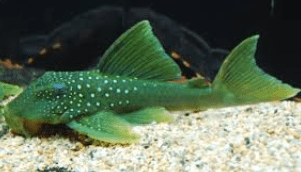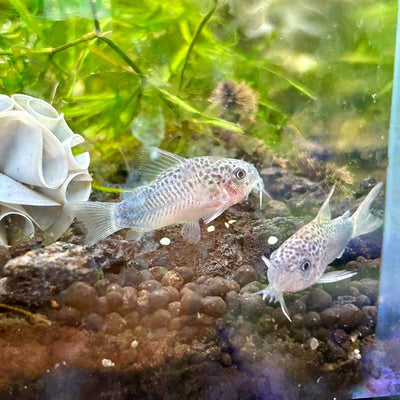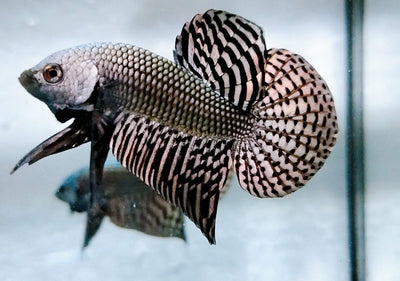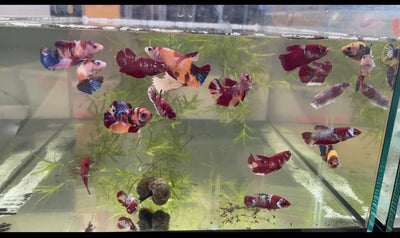Betta fish, also known as Siamese fighting fish, are popular pets known for their vibrant colors and elaborate fins. Proper care and attention are crucial to ensure the health and well-being of these beautiful fish. Here's a guide on how to care for your Betta fish:
-
Tank setup:
- Size: Betta fish require a minimum tank size of 5 gallons (19 liters) to thrive. The more space, the better.
- Filtration: Use a gentle filter with a slow flow rate to prevent the Betta's delicate fins from getting damaged.
- Temperature: Maintain the water temperature between 76-82°F (24-28°C) using a submersible heater.
- Decoration: Provide hiding spots and plants (real or silk) to create a comfortable environment for your Betta.
- Sample 5.5 gallons tank setup with sponge filter, substrate and light

-
Water conditions:
- Water changes: Perform regular water changes of 25-50% weekly to maintain good water quality.
- Condition the water: Use a water conditioner to remove chlorine and chloramine from tap water before adding it to the tank.
- pH and hardness: Betta fish prefer slightly acidic to neutral water with a pH level of 6.5-7.5. The water hardness should be kept between 2-15 dGH.
-
Feeding:
- High-quality diet: Offer your Betta a varied diet of high-quality Betta pellets or flakes as the main staple. You can also supplement their diet with frozen or live foods such as brine shrimp, bloodworms, or daphnia.
- Feeding schedule: Feed your Betta small amounts 1-2 times a day. Only provide them with what they can consume within a few minutes to avoid overfeeding and water quality issues. Fasting one day a week might be good also.
-
Social interaction:
- Solitary fish: Betta fish are territorial and prefer to live alone. Keeping multiple male Bettas in the same tank can lead to aggressive behavior and fighting.
- Human interaction: While Betta fish don't require direct social interaction, they may become accustomed to their owners and recognize them over time. Spend time observing and enjoying their presence.
-
Health and maintenance:
- Observation: Keep an eye on your Betta's behavior, appetite, and physical appearance. Any signs of illness or distress, such as loss of color, lethargy, or fin rot, should be addressed promptly.
- Tank maintenance: Regularly clean the tank and remove any uneaten food or debris to maintain good water quality.
- Quarantine: When introducing new fish to your Betta's tank, it's advisable to quarantine them for a few weeks to prevent the spread of diseases.
Remember, each Betta fish is unique, and their care requirements may vary slightly. It's essential to research and learn about any specific needs or conditions related to the particular type of Betta you have. Providing a suitable environment, proper nutrition, and attentive care will contribute to the health and longevity of your Betta fish.






